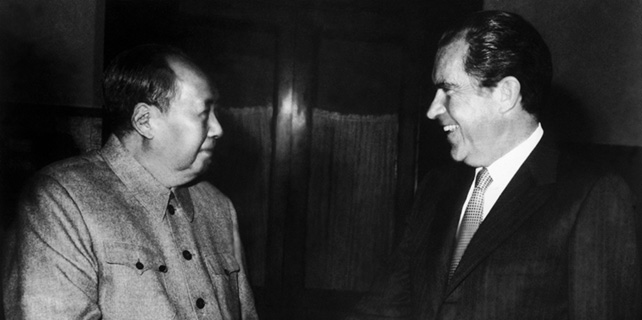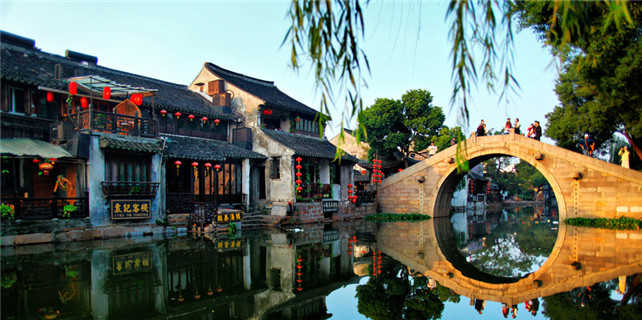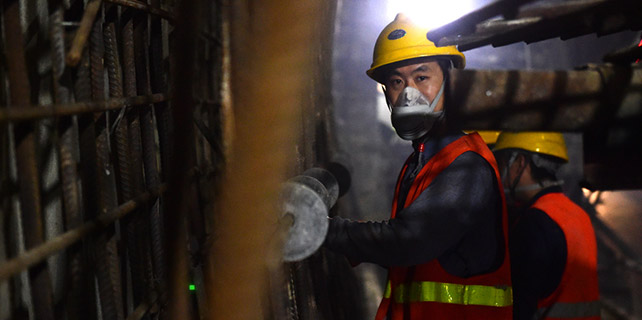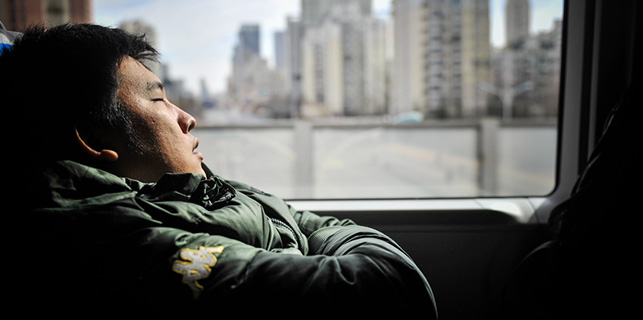China takes plunge into snow biz
Millions hitting the slopes as nation gears up ahead of 2022 Olympics
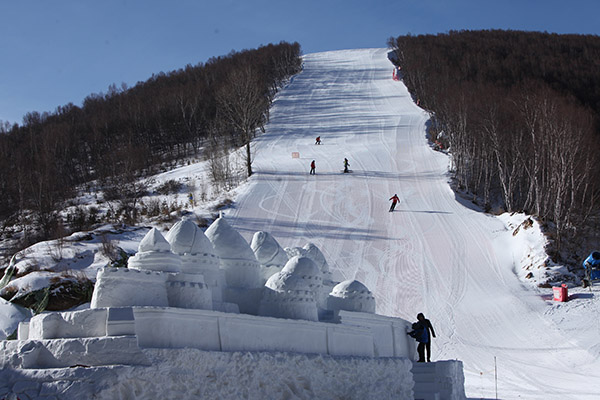 |
|
Skiers navigate a slope in Zhangjiakou, one of the venues for the 2022 Winter Olympics, in China's northern Hebei province. With the Beijing Winter Games looming, the government is accelerating programs to enhance the nation's winter-sports culture, with a target of having 300 million skiers over the next five years. [Photo by PATRICK BAERT/AFP] |
ZHANGJIAKOU, Hebei province-Hao Rui only took up skiing this winter, but the 17-year-old looked like a veteran as he perched casually atop a slope outside Beijing before schus-sing down the hill.
"I started my training on November 28. I'd never been skiing before," said Hao, standing with other young Chinese in brightly colored ski jackets at a resort in Zhangjiakou.
For some it is a skill that takes years to hone, but Hao is already teaching others.
"Since the end of January, I've been an instructor," he said.
China hopes millions of others will follow in his tracks.
Beijing will host the 2022 Winter Olympics and authorities want to leverage interest in the Games to develop a winter sports culture.
Skiing is in its infancy in China, and the powder on the slopes is typically shot out of a snow machine.
Only around five million Chinese ski regularly, at roughly 200 sites around the country, most of them small and under-equipped.
But China has ambitious plans to attract 300 million skiers at 1,000 locations by 2030, eyeing the economic potential of more resorts and greater spending on the sport.
Fake snow
The strategy is challenged by issues such as low snowfall. The Yan mountains, the future Olympic venue, barely reach 2,000 meters and have received only a few natural snowfalls this year.
The expense of participating in the sport on a regular basis also exceeds the reach of most Chinese consumers.
Yet new resorts are sprouting across northern China. Catering mainly to novices, the well-groomed slopes are wide and picturesque.
The approach appears to be working, as weekend skiers flock to slopes outside Beijing covered in artificial snow.
The wealthiest Chinese can venture to Japan, North America or Europe, but it is possible to find an international experience at home, with increasing numbers of foreign instructors.
Thaiwoo resort near Zhangjiakou has 16 foreigners among its 60 instructors.
The shortage of natural snowfall is not a huge problem because the artificial kind works well in this region, said Bertrand Camus, a French ski instructor who has followed the sport's rise in China.
"The weather is dry and constantly cold throughout the winter, so the snow remains good," said Camus, who contrasted it with the inferior artificial snow in some European resorts.
"It's not like the Alps, where the snow is always melting and refreezing."
A 30-year-old dentist, who gave only his surname Wang, said he is a regular at Wanlong, the largest resort near Zhangjiakou.
"With (China's) economic development, a lot of Chinese have made a lot of money. These people are passionate about novelties," he said.
'The air is clean'
Wang frequently rises at 5:30 am for the three-hour drive from his Beijing home, 200 km distant.
To make it easier-and to escape the capital's smog-he recently bought an apartment in Chongli, a large town near Wanlong.
"It is much better here than in Beijing, the air is clean," he said, pointing at blue skies on a day when the capital was shrouded in pollution.
Wanlong remains too pricey for many Chinese, with a lift pass costing at least 450 yuan ($65), rising on holidays and weekends, when rooms at the few nearby hotels can go for as much as 1,500 yuan per night.
Nine-year-old Tingting spent an entire month with her parents at one of Wanlong's most expensive hotels during the lengthy Lunar New Year holiday at the end of January, skiing for five straight days.
"I never get bored with skiing," she said.
That attitude bodes well for China's ambitious drive to become a winter sports power.
Agence France-Presse




